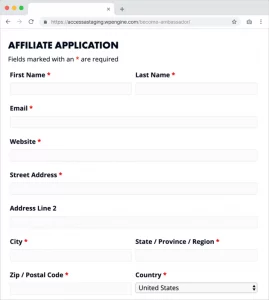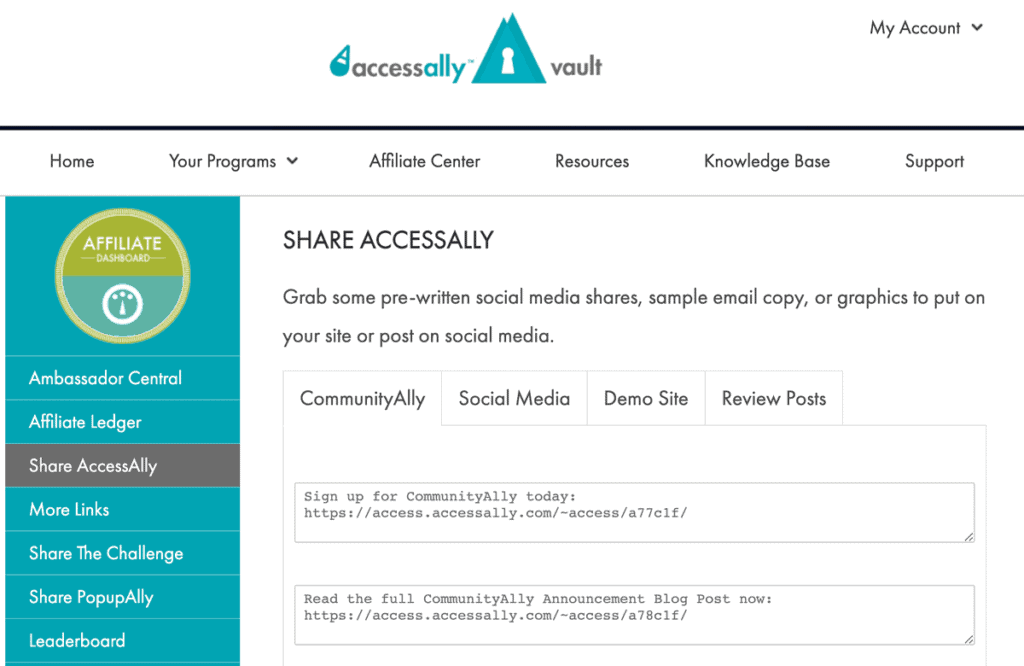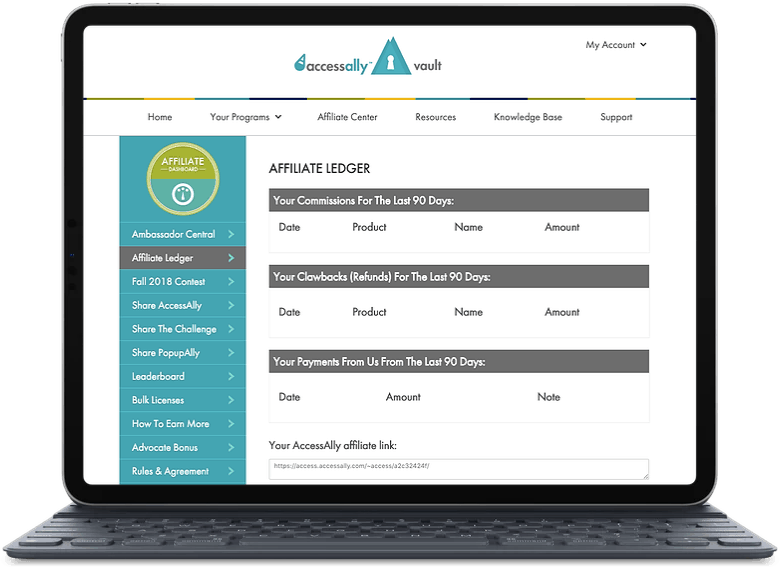We love to tout the benefits that a healthy affiliate program can offer an online business.
But there’s a flip side to the success stories of referral programs: when you create an affiliate program, there’s a high chance that you’ll also have to deal with a lot of negativity, too, from partners who are struggling to make any money to downright dishonest referral partners.
We’ve had to deal with disreputable affiliates who offer “fake” coupons, work with those who are really struggling to bring in sales, and address affiliates who are running ads to our products… which becomes a conflict of interest because we end up competing with our own affiliates for ad clicks.
So we’re sharing a little of what we’ve seen – as well as tips to overcome these affiliate program roadblocks for smoother sailing.
Staying vigilant while managing your affiliate program will help it to be a successful and overall positive experience for everyone involved.
Affiliate Marketing Fraud Is a Real Thing (And It Can Happen To You)
After you learn how to start your own affiliate program, you take a step of faith in the goodness of humankind. You welcome affiliates and offer them a share of your profits in return for sharing your products with others.
This can work wonderfully.
But there are two major types of affiliate fraud that tends to pop up with this type of program:
- Disreputable affiliates who create fake “coupon” sites that falsely represent your product.
- Affiliates who only sign up for the program so that they can benefit from using their own affiliate links.
Either type of fraud can harm your company.
(Sidenote: legitimate affiliate marketing success stories abound, so don’t let this discourage you!)
Fake Coupon Sites Scam The End User
When potential buyers sees your product, they might do a quick Google search to look for coupons. This is when they’ll likely end up visiting a fake coupon page set up by an affiliate.
The page might claim “click on this link to purchase [your product] at %15 off,” at which point the buyer is sent to the purchase page. They have no way of knowing whether the coupon was real or not – all they see is the price on the checkout page… which happens to be the full-price of the product.
The impact: the end client can become impervious to other, legitimate sales. You’re advertising 10% off for a bundle, but they THINK they already have a coupon for “15% off”.
Instead of getting a deal, they get scammed.
A Self-Awarded Discount is Not The Purpose of An Affiliate Program
People who buy using their own affiliate links are irritating because they’re essentially using the program to give themselves a discount on your product.
Once the purchase has gone through, they’re likely to forget all about the program… which means that they’re not sharing your link or introducing your products to any new audiences.
In short, they fail to invest in the heart and soul behind a thriving affiliate program.
How to Detect Affiliate Marketing Fraud
There are a few ways to detect the various types of affiliate marketing fraud mentioned above:
First, you can install a tracking script on your website, so that the link referrer is recorded. This will allow you to see on which page your clients are finding the affiliate link. Then, you simply verify whether it is from a legitimate referral. (The downside to this is that there’s really no user-friendly way to view this info. It’s a code-based script that you have to track through your website files).
When you’re on the lookout for affiliate marketing fraud, another good practice is to ensure that the client who made the affiliate purchase wasn’t already in your system before they clicked on the link.
If the clients are already in your system, they normally wouldn’t be clicking on affiliate links to purchase: they’d simply order from your sales page.
A client who is in your email system and then purchases through an affiliate link might be a sign that they’re signing up for an affiliate link before purchasing your product.
If this happens, you can simply investigate further.


How to Prevent Affiliate Marketing Fraud
Unfortunately, there’s no totally fool-proof way to prevent affiliate marketing fraud. The best course of prevention may simply be to screen any potential affiliates before accepting them into your program.
Some information you might want to know ahead of time:
- How they plan to promote your products
- A link to their site(s)
Then, maintain a proactive stance to detect affiliate marketing fraud before it gets out of hand.
Take Time To Plan How to Create an Affiliate Program That’s Profitable For Your Business
The dark side of affiliate marketing is real. It can leave your program with a bad taste in your mouth – and an unpredictable stream of revenue from your affiliate referrals.
While there’s no magic solution, there are three main areas where you can invest your time and attention to improve the effectiveness and morale of the program.
1. Your Affiliates Will Be Unsuccessful… Unless You Can Lead Them
For an affiliate program to be hugely successful and bring in a strong revenue stream for your business, you’re going to have to spend a bit of time managing and supporting your affiliates.
Many of your affiliates will have questions (“Why am I not getting results?” “Where is my money?” and “Are my links working?”)
For some of the more common questions, you might offer training resources (“Best practices to make the most out of your affiliate links”) and a list of FAQs to explain how payments work, etc.


It’s best that this educational info is housed in the same area as their affiliate links (if possible). It will be far easier for them to view the info, especially since it’s likely that they’re a member of more than one affiliate program… and it can be tough to remember which rules apply where.
The importance of housing all of your affiliate resources in one area is why we made sure AccessAlly had a built-in affiliate system that integrates with all of our CRMs. So no matter which system you’re using, you can house everything – links, graphics, and info – inside your own membership site.
Many affiliates rely on their commissions for a major source of income. When problems arise within the program (broken links, payout mixups, etc.), it’s important to treat these seriously. What might seem like a paltry sum from a business revenue perspective might be a huge part of your affiliate marketer’s income.
Fielding tough questions through email is a good practice to ensure that there’s a written record of communication, in case of a dispute later on.
2. A Rule System Keeps Everything Legal and In Order
Speaking of communication… it’s worth taking the time to be up-front and super clear about what you’re promising (and not promising) for your affiliates.
Things like:
- How often you pay affiliates
- Is there a minimum threshold for payout
- What happens when there’s a product cancellation
- How are they allowed to promote (paid advertising? product mention?)
- Can they use your logo or modify branded graphics to promote your product?
- Etc.
These are all things you should have listed prominently for a strong affiliate program.
These are also things that are worth consulting with your lawyer to draft the correct wording. In the event of a dispute, it might save a lot of hassle.
3. Affiliates Long For Organization and Resources
Are you setting up your program for success or failure?
I’ve been an affiliate for a few different companies… and have been totally at a loss for how to get even the simplest links from them.
I’ve logged into affiliate “sites” that were totally bare, with no way to navigate through the area. I’ve been to affiliate areas that did NOT provide links, but only offered jumbled instructions on how to create your own.
This “do it yourself” approach makes it difficult to promote your products.
This might include:
- A single place to login.
- All necessary links pre-created (none of that “add this code: ASDKJAKLJA to the URL, but only after spinning around twice and spelling your name backwards”).
- Pre-created affiliate links, so affiliates just have to copy/paste/go
- Affiliate orders listed, so they know right away how much they’ve made
- A resources page to help them promote your products with gusto.
- A leaderboard during launch windows so they can compete and get excited about their sales.
This is all possible with AccessAlly’s built-in WordPress affiliate plugin.


Maintaining a Professional Affiliate Marketing Program Can Be A Huge Bonus For Your Online Business
When you invest in creating a balanced, helpful affiliate hub, you increase the satisfaction of your affiliates – and decrease the amount of frustration within the program.
And, if you’re using our software, take time to check out how AccessAlly, our WordPress affiliate plugin can help make this happen.



